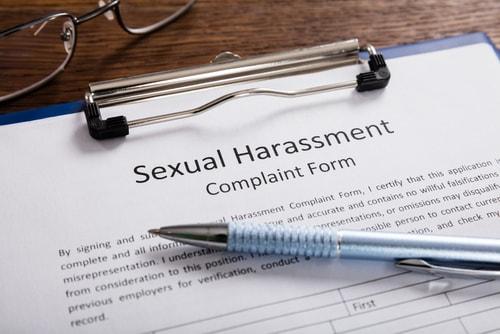Wheaton |
St. Charles |
Sycamore
 630-665-7300
630-665-7300
Sexual Misconduct: Harassment vs. Assault
 If you were to Google the phrase “sexual harassment,” the search engine will bring up more than 100 million results. This is probably not much of a surprise, considering the way that sexual misconduct, sexual assault, and sexual harassment have taken center stage in the public consciousness over the last year or so. Since last fall, dozens, if not hundreds, of influential individuals—most of them men—have been accused of various forms of sexual misconduct. Some are facing criminal charges while others have had their careers essentially destroyed.
If you were to Google the phrase “sexual harassment,” the search engine will bring up more than 100 million results. This is probably not much of a surprise, considering the way that sexual misconduct, sexual assault, and sexual harassment have taken center stage in the public consciousness over the last year or so. Since last fall, dozens, if not hundreds, of influential individuals—most of them men—have been accused of various forms of sexual misconduct. Some are facing criminal charges while others have had their careers essentially destroyed.
While the resulting #MeToo movement has given victims of sexual misconduct the platform and the confidence to come forward with their stories, there have been unintended consequences as well. One of these is confusion among the general public about what sexual harassment is and when it is considered to be illegal.
Sexual Harassment is an Employment Issue
If you have been cat-called while walking down the street or continually asked out on a date by your neighbor, you may be the victim of harassment of a sexual nature. According to the law, however, you have not been sexually harassed. In fact, sexual harassment is not a criminal offense in Illinois. Harassment is a crime, as are intimidation, stalking, threatening, and similar behaviors, but they are crimes regardless of whether they include a sexual component.
Sexual harassment, by law, is a form of employment discrimination on the basis of a person's sex. It is expressly prohibited by Title VII of the Civil Rights Act of 1964 and the Illinois Human Rights Act. According to these laws, sexual harassment can fall into one of two basic categories: quid pro quo harassment and hostile work environment harassment. With quid pro quo harassment, the victim may be asked or required to perform sexual favors in exchange for workplace benefits, including promotions, better pay, or even just to keep their job. Hostile work environment harassment refers to pervasive behavior that interferes with a victim's ability to do his or her job. Sexual comments or jokes, inappropriate touching, and continued unwelcome advances by coworkers could create a hostile work environment.
Sexual Assault and Misconduct
The U.S. Department of Justice defines sexual assault as “any type of sexual contact or behavior that occurs without the explicit consent of the recipient.” State laws often refine this definition further. Sexual assault may include rape, forcible intercourse, and touching of a sexual nature without the victim's consent. Sexual assault and related behaviors are criminal acts, and isolated incidents can absolutely be prosecuted.
The phrase “sexual misconduct” does not have a specific legal definition. Instead, it serves as a sort of catch-all for inappropriate or unwanted sexual attention. In a workplace setting, a company could implement its own policies regarding sexual misconduct that go above and beyond the state and federal definition of sexual harassment. For example, a company could prohibit “fraternizing” or sexual relationships between members of management and non-management employees despite there being no law against such relationships.
If you have been the victim of sexual harassment in the workplace, our team can help you understand what you should do next. Contact one of our Illinois sexual harassment attorneys to get the guidance you need today. Call 630-665-7300 for a confidential consultation.
Sources:
https://www.washingtonpost.com/news/soloish/wp/2017/12/21/whats-the-difference-between-sexual-assault-and-harassment-lets-break-it-down/
http://www.ilga.gov/legislation/ilcs/ilcs4.asp?DocName=072000050HArt%2E+26%2E5&ActID=1876&ChapterID=53&SeqStart=75200000&SeqEnd=75900000


 Read More
Read More





